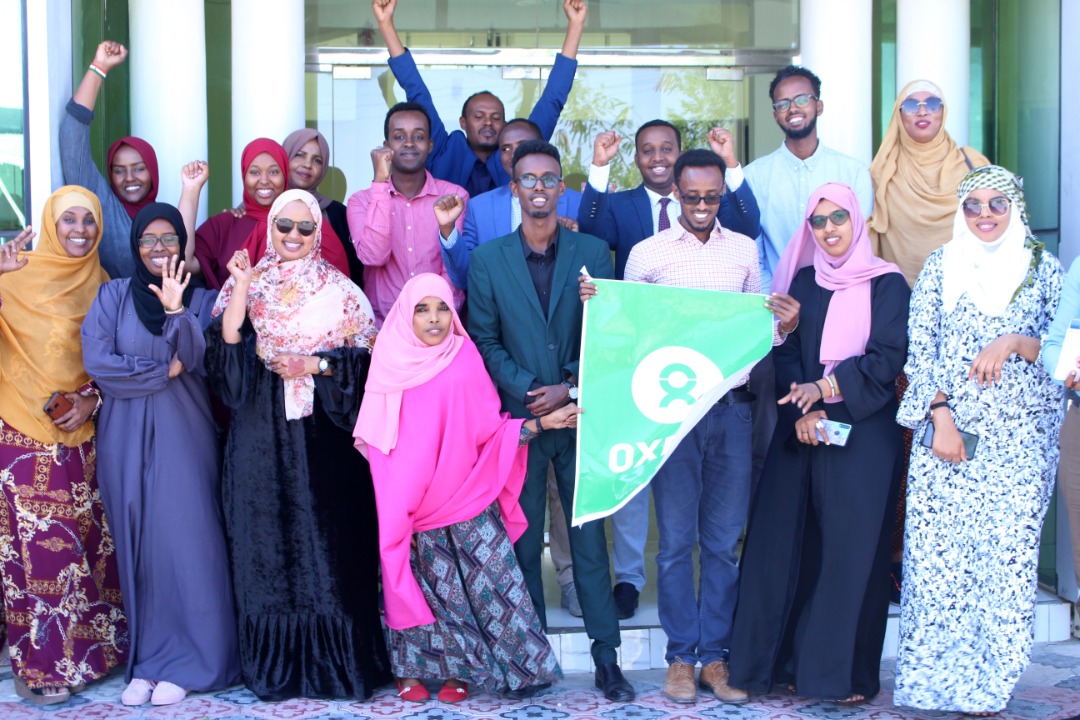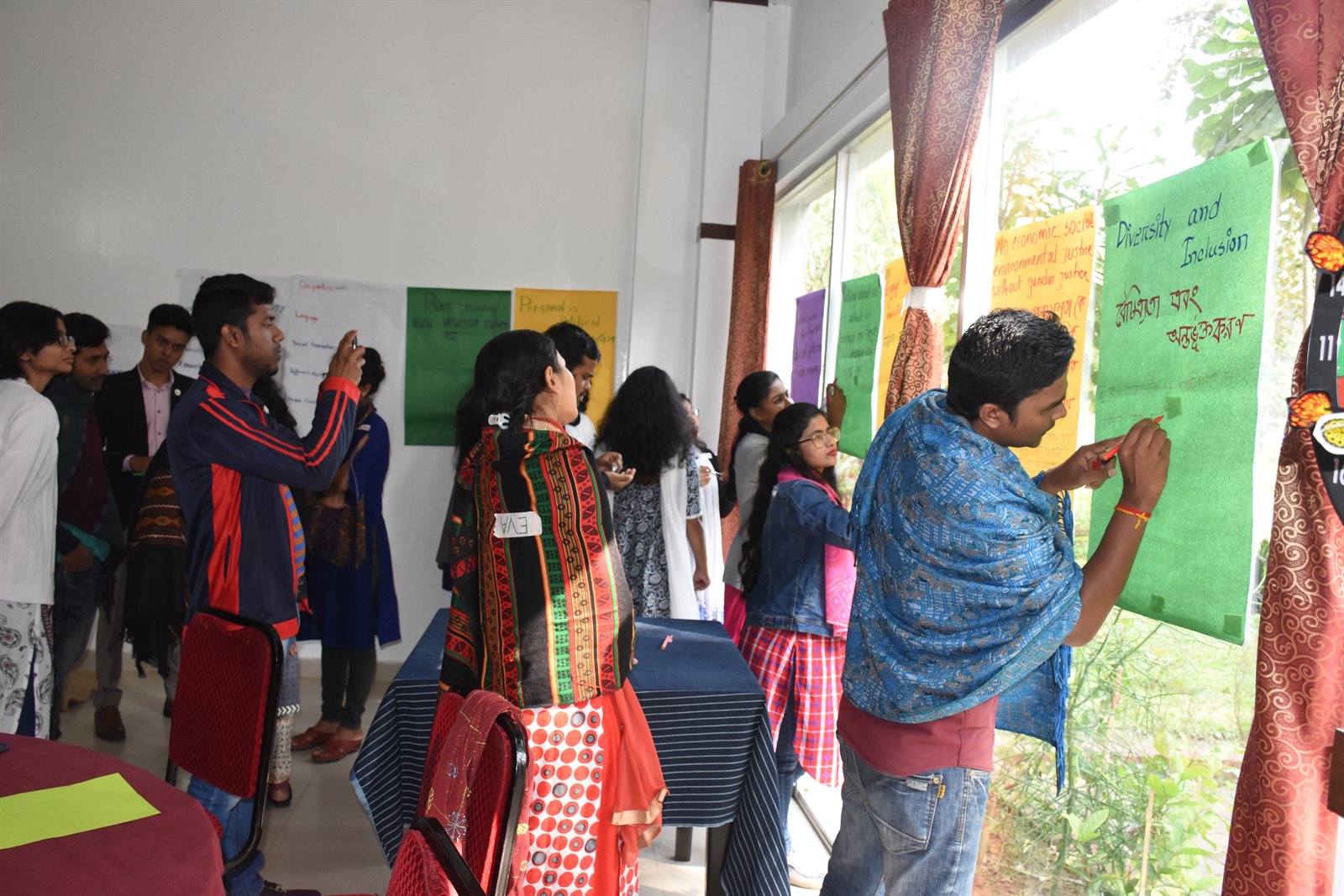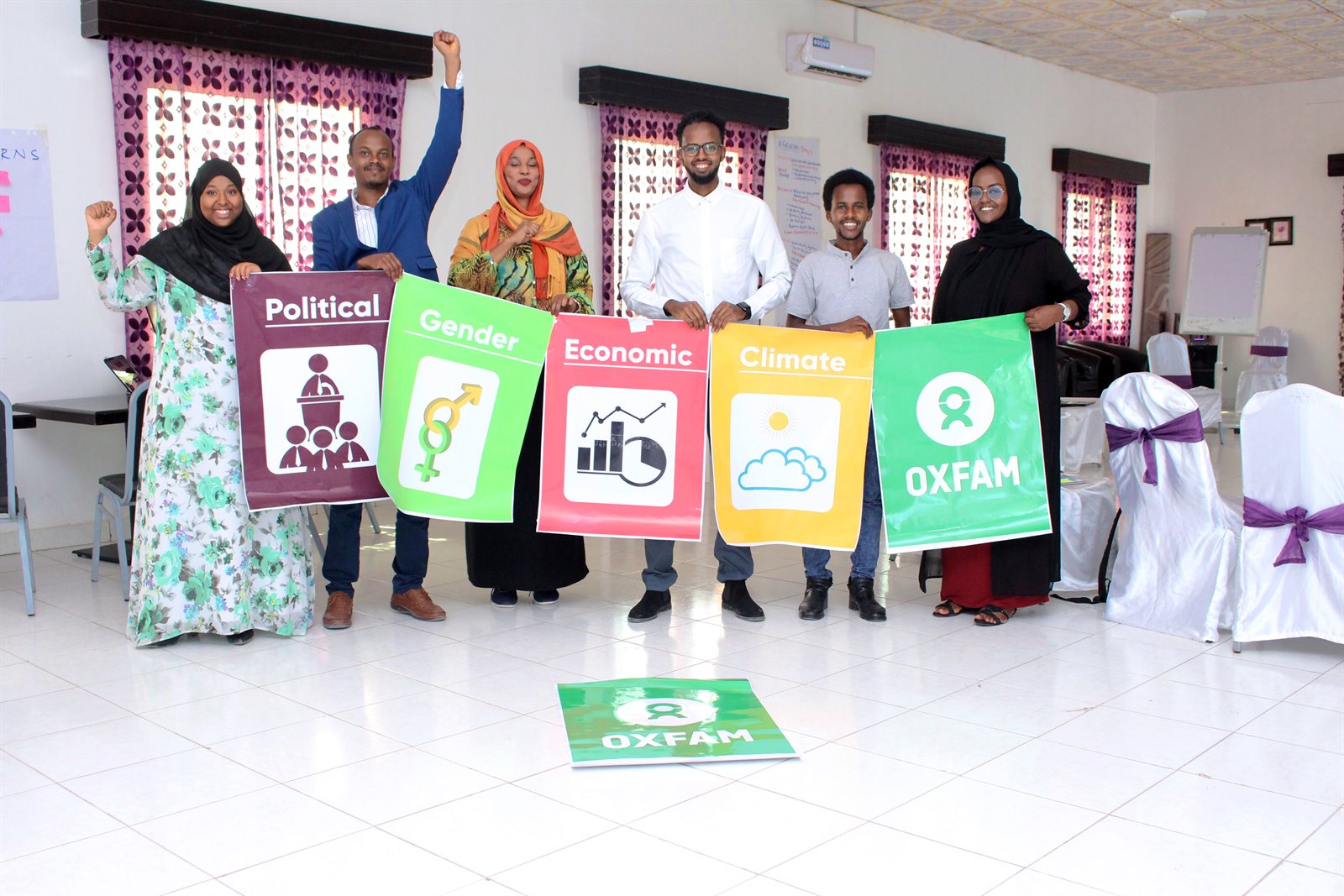What organisations like Oxfam can learn from young people
Blog by Daniel Macmillen Voskoboynik, Youth Coordinator of the Youth Engagement Plan

In the months before the coronavirus crisis, over 350 young activists and feminist from leaders gathered in face-to-face workshops and digital conversations to explore a series of questions: how can we build power to address the systemic crises of our times? How can youth movements better partner with Oxfam to activate the social transformations necessary over the next decade?
Invest in youth
The results were clear. Across the board, from students striking for climate justice, to feminist movements challenging patriarchy, to groups mobilising to confront centuries of racial injustice, youth-led movements are changing the game and winning on the world’s most pressing issues. Social transformation over the next decade in part depends on how we can sustain and scale up the energy being put forward by young activists.
International organisations need to listen to and take inspiration from the boldness, diversity, creativity, flexibility, and care-based approaches embodied by youth movements. They should direct funding towards youth groups, invest in building long-term relationships with youth movements, and actively work to transform themselves to become more friendly to youth audiences.
Many Somali youth lack safe spaces to unleash their innovations, political views, and social entrepreneurships. These spaces could encourage innovation, youth networking, and sources of revolutions that lead to enhanced participation of youth, women and marginalized groups in socio-economic and political spheres. – Summarised reflections from Somalia workshop

Young people spearhead the covid-19 response
The covid-19 pandemic has given even more urgency to the case for youth engagement. During the last months, many of the activists involved in the Youth Engagement Plan have been at the forefront of local humanitarian responses to the covid-19 pandemic.
The grassroots nature and adaptability of youth groups have allowed them to be the first to react to the rapidly unfolding pandemic. From Kenya to India to Argentina, young people have spearheaded initiatives to raise awareness about preventing the spread of infections, delivered food and medical supplies to the most vulnerable groups, and challenged broader injustices such as domestic violence, exacerbated by lockdowns or other measures taken to tackle COVID-19.
Social organizations need to contribute to a post-colonial narrative where everyone's strengths, experience and expertise are valued. - participant, digital engagement
Listen to and learn from youth
The coronacrisis puts many challenges before international, humanitarian and progressive organisations. Institutions have to be creative with resources and logistics, and rapidly reactive to dynamics. This pandemic offers an opportunity for organisations to listen and learn from the experiences of successful youth-led movements, with the aim of crafting more resilient ways of working for the multiple crises we will face this decade.
The potential for mutual collaboration and support is immense. As a youth participant in the online focus group in Italy said, ‘Young people need Oxfam in the way that Oxfam needs us; we need their instruments in the way that they need our power.’
Through a bold new global strategy, Oxfam is planning on prioritising bold and close engagement with youth movements over the next decade. Together, we can win a more just and sustainable world.





